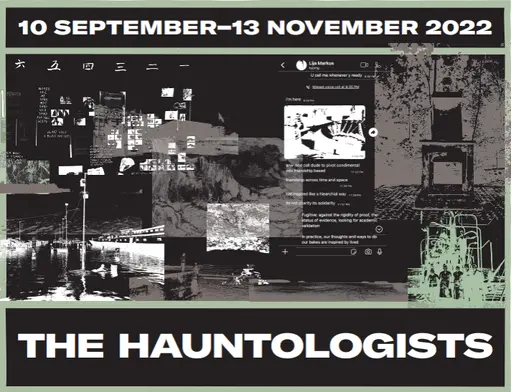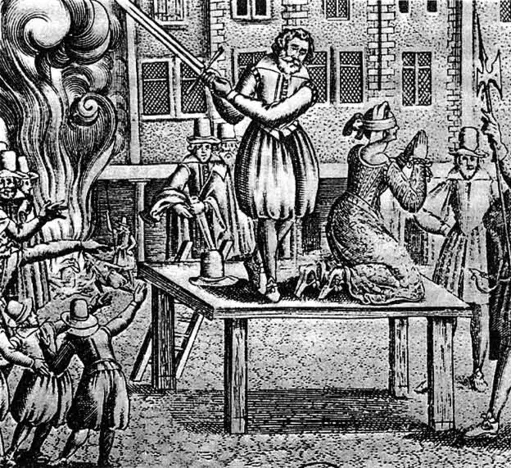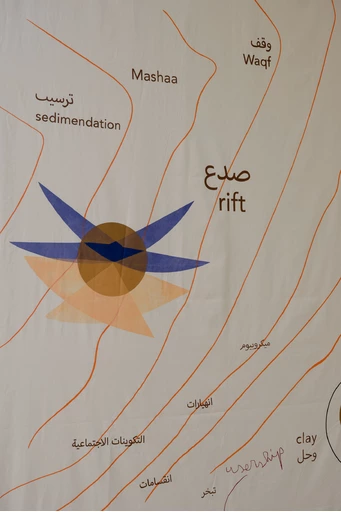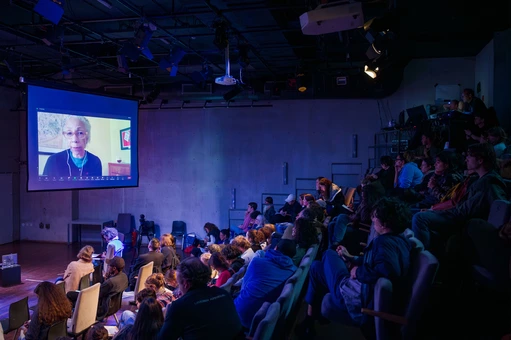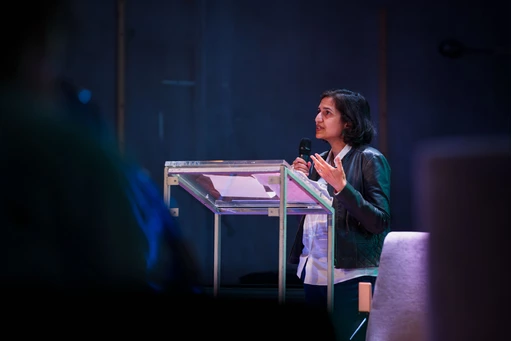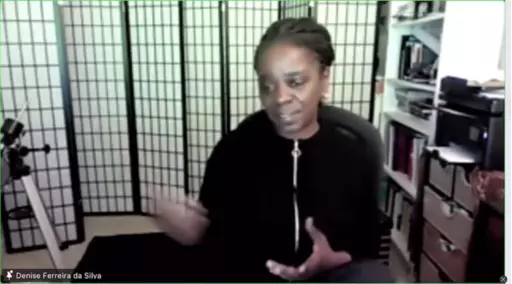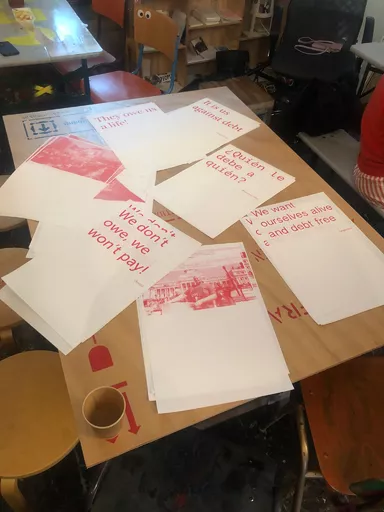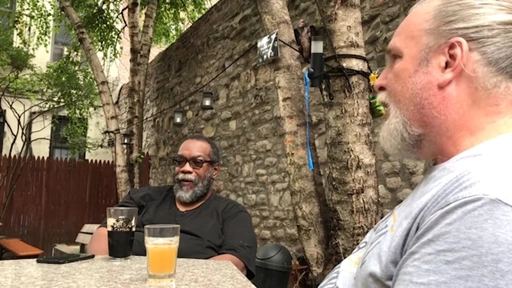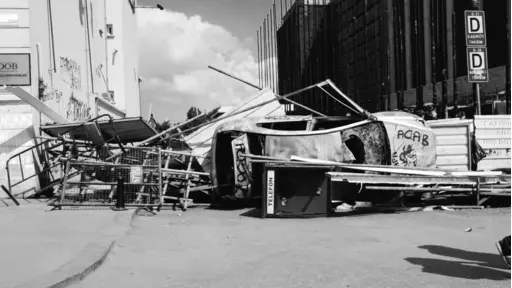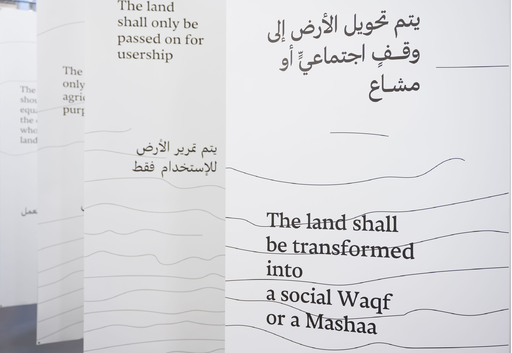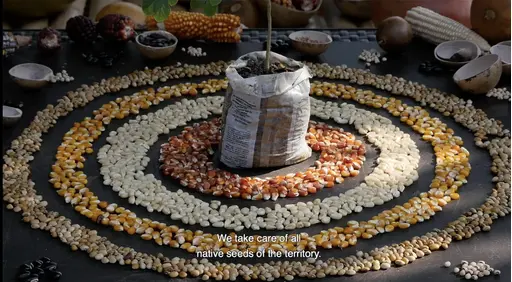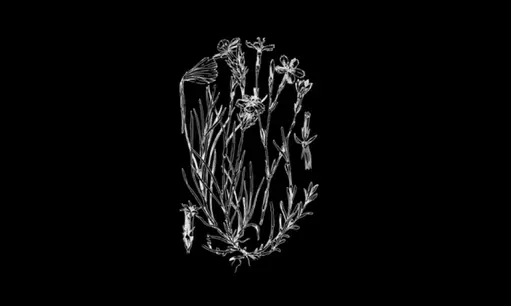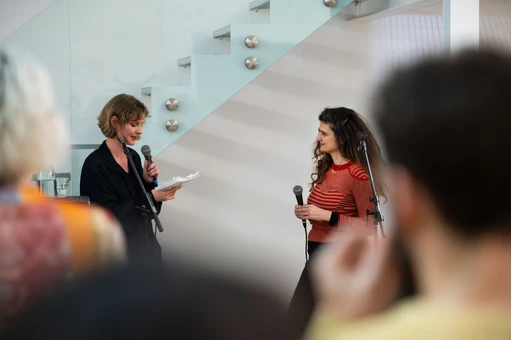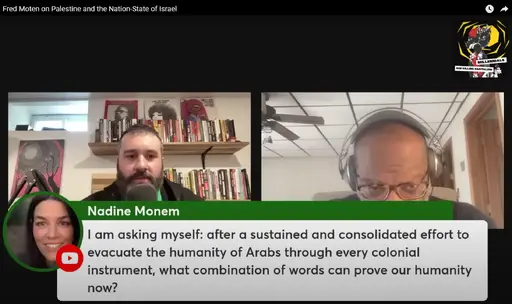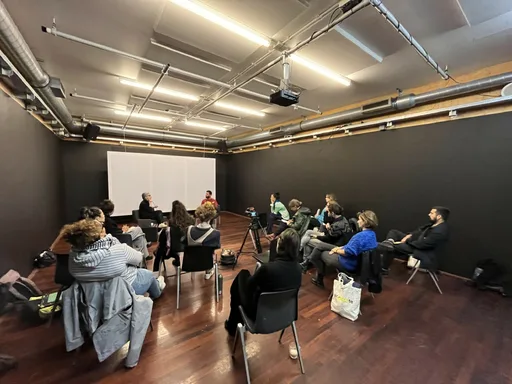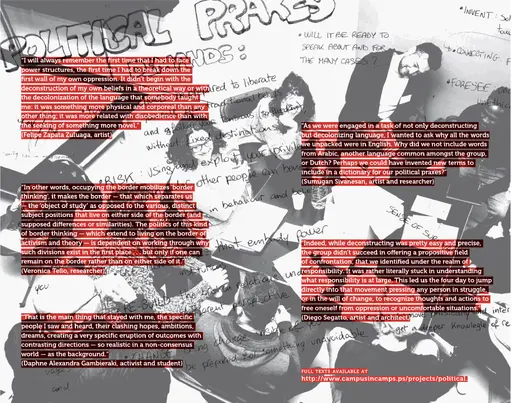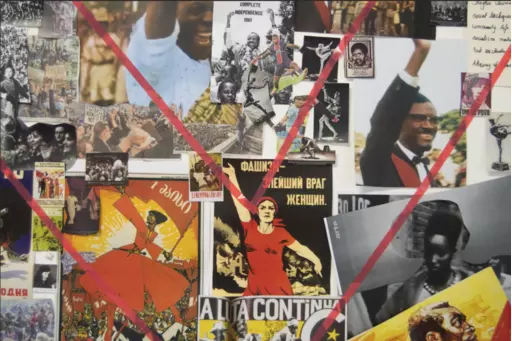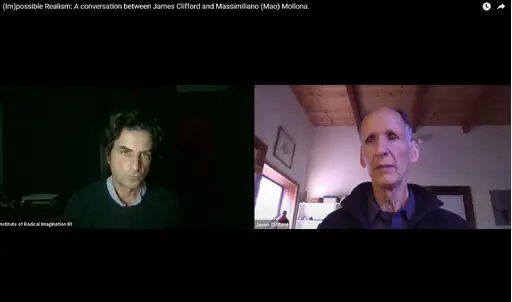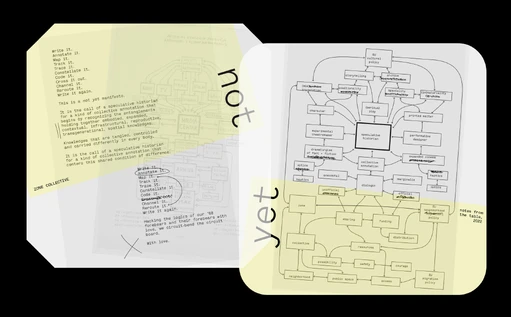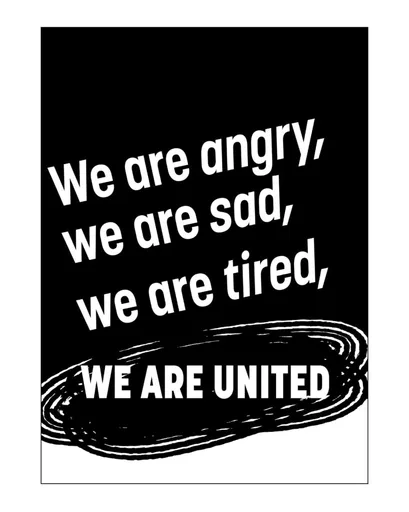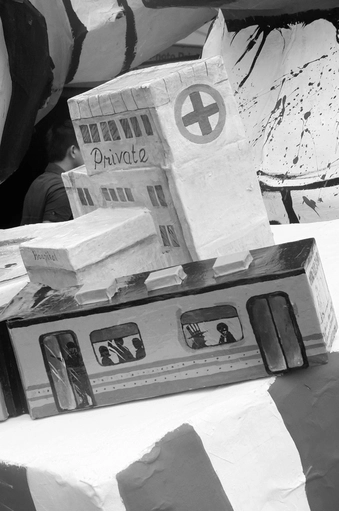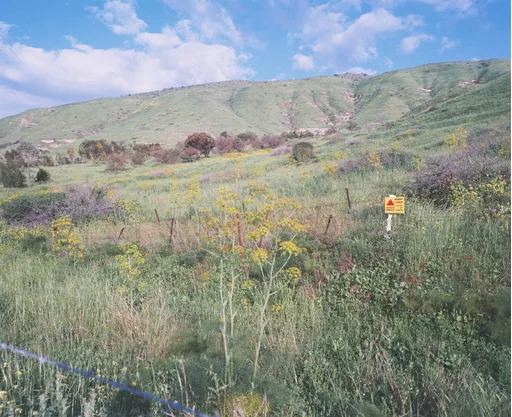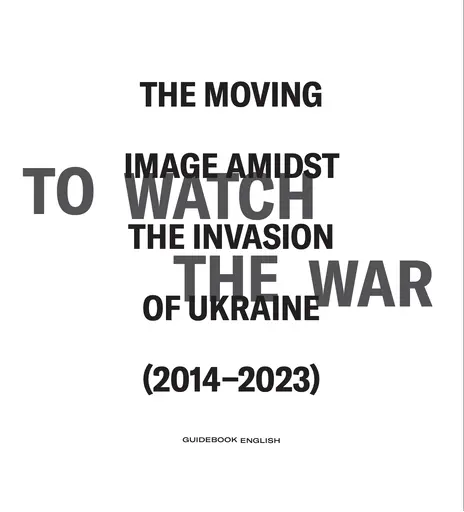Onderzoek en Publicaties
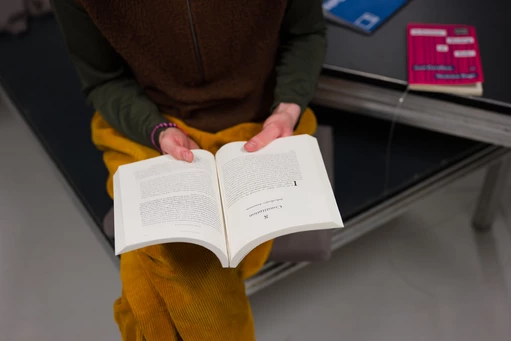
Usufructuaries of earth: a slow-growing reader
The “Usufructuaries of earth” focus on Prospections is a reader that undergirds the project as an usufructuary of knowledges, turning the research into a collective research and publishing resource.
Standing With Ukraine
BAK’s digitale forum Prospections biedt via de focus “Standing With Ukraine. Standing With The Oppressed” een doorlopende publicatie van materiaal zoals teksten, documentatie en live online events die context en inzicht bieden wat betreft de radicale weerstand tegen de oorlog in Oekraïne.
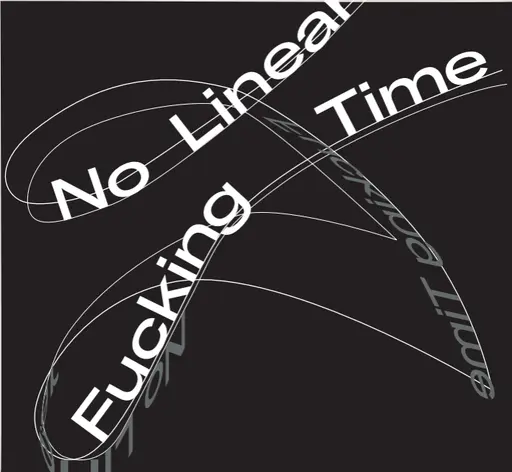
No Linear Fucking Time
Deze focus van Prospections onderzoekt een groot aantal temporele vormen, door verschillende schalen en ritmes onder de loep te nemen. Als een belangrijk onderdeel van de tentoonstelling en het discursieve project No Linear Fucking Time (2021–2022), is de motivatie voor deze focus eveneens gegrond in het besef dat de tijdsconstructen die nu dominant zijn – tijd als een geabstraheerde, lineaire stroom, autonoom en onbesproken – een wereldbeeld promoten dat uiteindelijk wereldverwoestend is.

ExitStateCraft
‘ExitStateCraft’ biedt voorstellen voor exitstrategieën uit de staat in haar huidige vorm(en). De komende maanden wordt het gesprek over deze voorstellen dialectisch en haperend voortgezet via Prospections, aan de hand van uiteenlopende en tegenstrijdige vormen. Van het bedenken van alternatieve staten tot het werken aan poststatistische sociale vormen, van internationale tot trans- en postnationale organisatiestructuren, en van kritiek op het juridische apparaat tot een totale afschaffing van de wet.
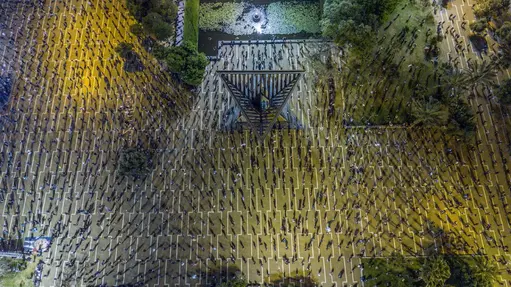
How to Assemble Now
We starten met deze nieuwe ‘focus’ op Prospections nu Nederland, net als een groot deel van de rest van de wereld, langzaam uit de Covid-19-lockdown komt, en instellingen druk bezig zijn om terug te keren naar een onwennige, aangepaste versie van ‘normaal’. Tegelijkertijd is het, in BAK’s opvatting, de rol van kunst en kunstinstellingen om voortdurend andere manieren van samenzijn voor te stellen en in de praktijk te brengen.
Tactical Solidarities
In tijden van nood schieten bestaande strategieën voor het ondersteunen van gemeenschappen vaak tekort. In de editie van Prospections, met de titel Tactical Solidarities, zijn documentatie, publicaties, nieuwe verslagen en een online live-evenement waarin suggesties te vinden zijn over hoe we solidariteit in een nieuw licht kunnen beschouwen en in de praktijk kunnen brengen samengebracht.

In dit korte afro-futuristische verhaal, geschreven door Amiri Baraka in 1995, ontdekt een ongenaamde uitvinder een manier om terug te reizen door de tijd – door muziek. “I duwde de Anyscape in de Rhythm Spectroscopic Transformation. En toen stemde ik het af zodat Anywhereness kan worden gecombineerd met de Reappearance als muziek!” legt de uitvinder uit. “Nu voeg ik Rhythm Travel toe! Je kunt verdwijnen en verschijnen waar en wanneer die muziek speelde.”
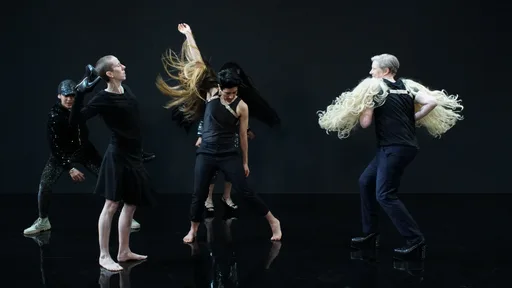
Tijdsgebonden drag, erohistoriografia, chronomornativiteit, geilheid onder het kapitalisme, ritme, dansen en 'crip time'. Dit zijn een paar van de onderwerpen die worden genoemd in het interview met Elizabeth Freeman, queer theoreticus en auteur van de boeken Time Binds: Queer Temporalities, Queer Histories (2010) en Beside You In Time: Sense Methods & Queer Sociabilities in the American 19th Century (2017), en Amelia Groom, co-editor van de 'No Linear Fucking Time' focus op Prospections.
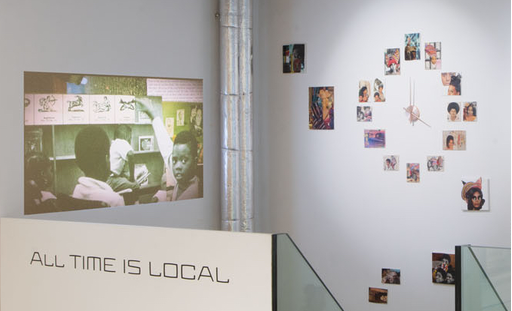
Reclamations of time, geared toward community and temporally “local” orientations, animate this interview with artists and activists Black Quantum Futurism (Rasheedah Phillips and Camae Ayewa), who draw from Afrofuturism, quantum physics, and “Afrodiasporic traditions of space and time that are not locked into a calendar’s date or a clock’s time." As discussed in the interview (which first appeared in Toward the Not Yet: Art as Public Practice, published by BAK and MIT Press, 2021), BQF’s recent and forthcoming projects directly challenge imperial and colonial standardizations of time.
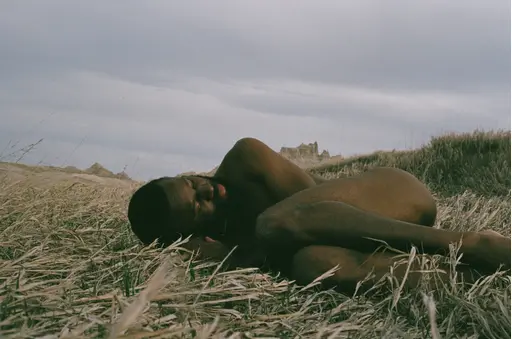
Dit essay, oorspronkelijk gepubliceerd in het Journal of Interdisciplinary Voice Studies, is een onderdeel van muzikant en schrijver JJJJJerme Ellis’s veelzijdige project The Clearing. Ellis beschrijft het bos en zijn open plekken als “plekken van weerstandige ‘black oralities’” en verkent hoe stotteren, Blackness en muziek kunnen figureren binnen de praktijken van het weigeren van hegemonisch tijdsbeheer, spraak en ontmoeting.
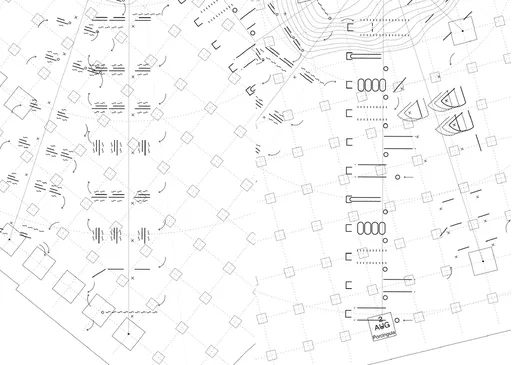
Wanneer inheemse gemeenschappen worden gevraagd om bewijs te tonen van hun traditionele connectie met hun voorouderlijke landen, respecteert wat Westerse legale instanties accepteren als documentatie niet volledig hoe stammencultuur en traditionele manieren van kennisoverdracht werken. Het onderzoeksproject en boek The Language of Secret Proof (2019), geschreven door Nina Valeria Kolowratnik, reageert op de ervaring met de productie van bewijsmateriaal van bewoners in Jemez Pueblo, New Mexico. Dit boek bevecht de omstandigheden waaronder de rechten van inheemse volken om traditioneel land te beschermen en terug te winnen worden behandeld in het wettelijk kader van de Verenigde Staten.
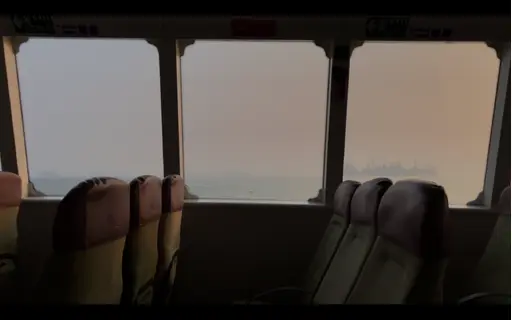
SEA – SHIPPING – SUN (2021) is een korte film en meditatie over maritieme handelsroutes, geregisseerd door Tiffany Sia en Yuri Pattison. De film werd opgenomen over de span van twee jaar, maar is geedit om het eruit te laten zien alsof het één dag is, van zonsopgang tot zonsondergang. De film speelt de soundtrack van scheepsberichten uit het archief van BBC Radio 4 uitzendingen. SEA – SHIPPING – SUN werd gemaakt met de intentie om de kijker slaperig of relaxed te laten voelen, en verzamelt een visie van verstrengeling. Wij worden achtergelaten met de overblijfselen van geschiedenis: een zachte, wiegende waltz over de zee.
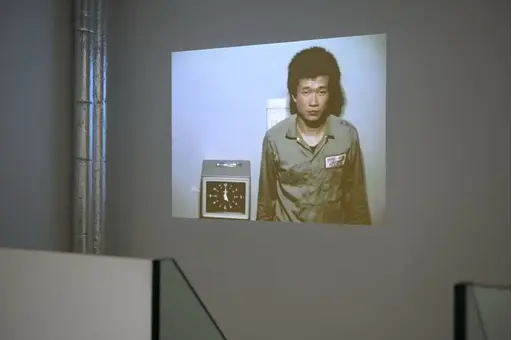
In dit essay reageert Amelia Groom op Tehching Hsieh's werk Time Clock Piece (One Year Performance 1980–1981) (1980-1981), een van de stukken die te zien is als onderdeel van de tentoonstelling No Linear Fucking Time bij BAK, basis voor actuele kunst, Utrecht. Door een lezing van het gelijktijdige anti-werk lied 9 to 5 (1980) van Dolly Parton reflecteert Groom op de historische verschuivingen in de manieren waarop werknemers werden en nog steeds worden uitgebuit door technieken van tijdsdiscipline.

Grappling with the imposed linearity of timespace as a fundamental feature of colonial violence, this essay by Promona Sengupta (also known as Captian Pro of the interspecies intergalactic FLINTAQ+ crew of the Spaceship Beben) proposes a mode of time travel that is “untethered from colonial imaginations of the traversability of time and space.” While coloniality has enforced an externalization of time and space as things outside the body, Sengupta affirms practices of relational care and survival that restore time and space as embodied realities.
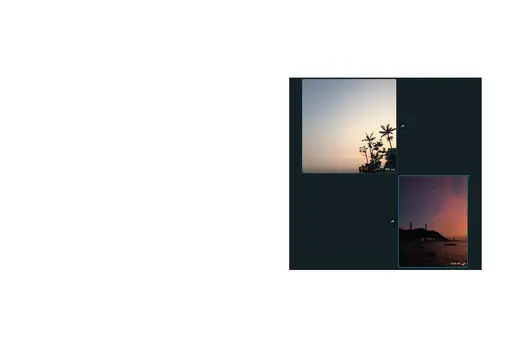
Weird Times (2021) is een chapbook van 30 pagina's door kunstenaars Tiffany Sia en Yuri Pattison over de tijd aflezen en hegemonie. Het bevat Sia's schrijfwerk en beelden geselecteerd door Pattison, en geeft een korte geschiedenis weer van de ontiwkkeling van technologieën voor tijdregistratie. De klok wordt gedemonteerd als een politiek werktuig, een metronoom van dwang en een versneller van oorlogsmacht. Uit deze mechanieken verschijnen weerstandige ‘counter-tempos'.
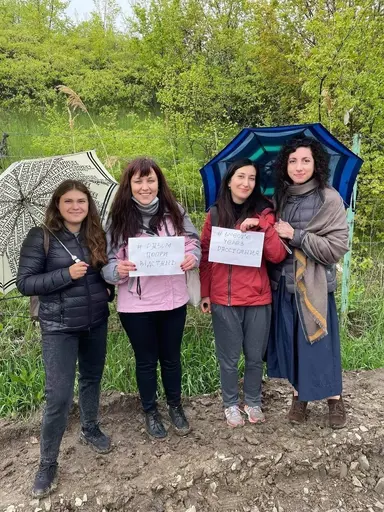
For Prospections “Standing With Ukraine. Standing With the Oppressed,” feminist, social researcher, and peace activist Nina Potarska has kindly given us permission to republish her 2016 text “Maidan and After: State of the Ukrainian Left,” originally published in n+1 magazine 24, New Age (Winter 2016).
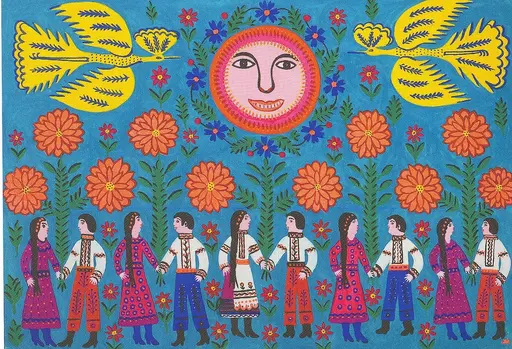
Op de vijfde dag van de oorlog, vanuit een suburb in Kyiv, schrijft Oleksiy Radynski een betoog tegen de Russische Federatie.
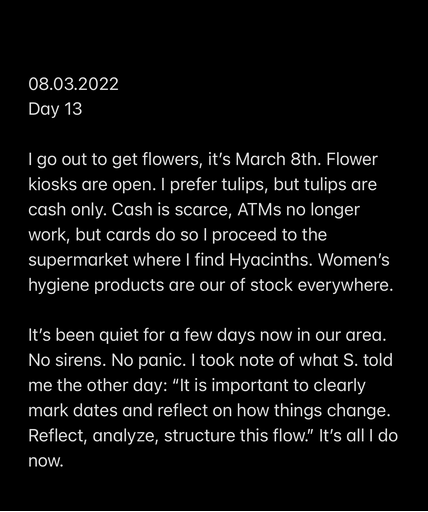
Het is de dertiende dag van de Putin's invasie. Wetenschapper en kunsthistoricus Asia Bazdyrieva verblijft in Ukraine, ten zuiden van Kyiv, samen met haar familie. Ze heeft elke dag van de oorlog totzover een post gedeeld over haar dagelijks leven. Hier is haar post voor dinsdag 8 maart 2022, Internationale Vrouwendag, gepost met toestemming van de auteur.
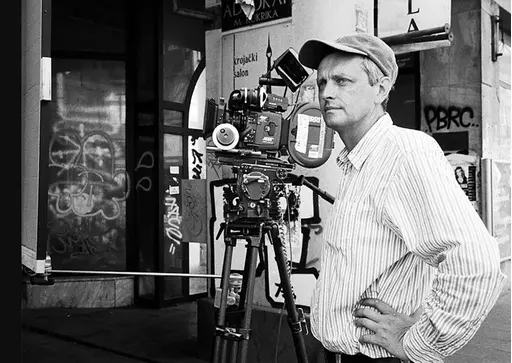
Stand With Ukraine: Een Provisorische Leeslijst is een samenstelling van artikelen en interviews waarvan wij denken dat ze relevant zijn en historische context bieden op de aanval op Oekraïnie. Ook geeft het een richtlijn voor hoe wij bij BAK, basis voor actuele kunst en als een breder internationaal links dat zich tegen deze en alle oorlogen verzet, solidariteit kunnen uiten en politieke druk kunnen uitoefenen.
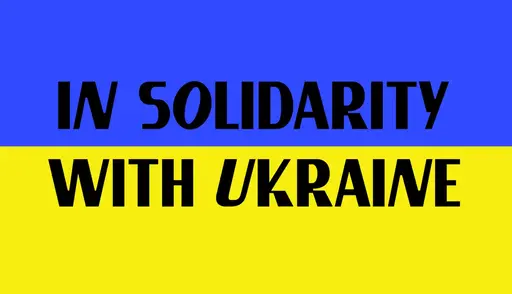
Wij van BAK, basis voor actuele kunst, Utrecht veroordelen de brute militaire invasie van Oekraïne door Vladimir Poetin. We staan in solidariteit met allen die door deze oorlog aan onmenselijke omstandigheden worden onderworpen. Ook zijn we solidair met de anti-oorlogs en pro-democratiebewegingen in Rusland en Belarus, en met de strijd tegen het imperialisme overal ter wereld.
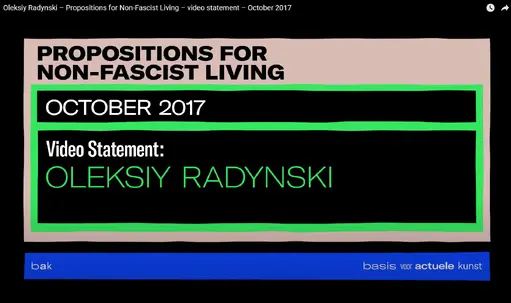
In het licht van de verwoestende oorlog tegen Oekraïnie herpubliceren we deze video, gemaakt door Oleksiy Radynski (filmmaker en schrijver, Kyiv) in 2017.
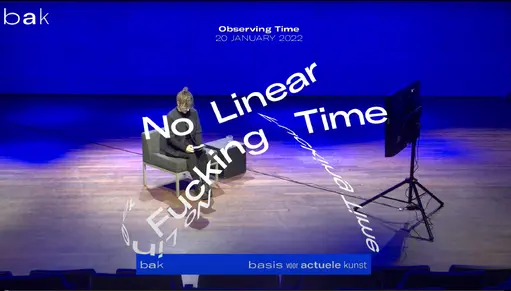
Een online gesprek met performance kunstenaar Tehching Hsieh, schrijver Amelia Groom en schrijver en curator Adrian Heathfield, geleid door Rachael Rakes, BAK curator Public Practice, op 20 januari 2022. Het gesprek neemt Hsieh's werk als uitgangspunt voor het bespreken van onder andere perfomatieve tijd, werktijd, gaten en ritmes van uithoudingsvermogen.
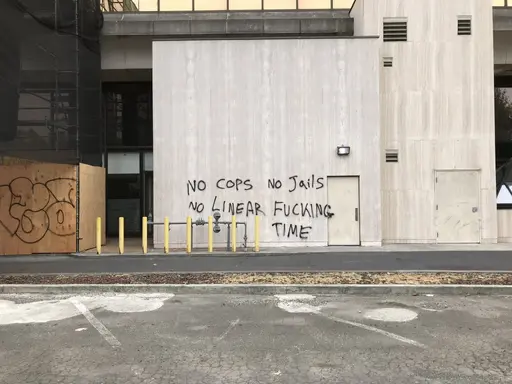
The No Linear Fucking Time Bibliografie is een zich ontwikkelend naslagwerk waarin wetenschappelijke en artistieke teksten worden gebundeld die betrekking hebben op de verscheidene onderzoekslijnen binnen dit project.
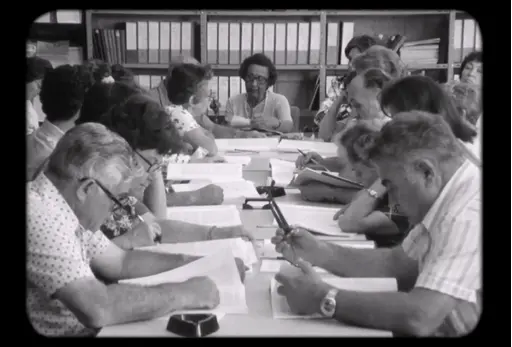
De moderne natiestaat hoort etnisch en cultureel homogeen te zijn; na de Tweede Wereldoorlog hebben beide Israel’s toepassing van Zionisme en Arabisch Nationalisme versies van dit purisme opgenomen—met als gevolg dat alles wat zich weigert aan te passen van de sociale gemeenschap wordt weggewerkt en buitengesloten. Na de Zesdaagse Oorlog paste Israëlisch schrijver Jaqueline Kahanoff de notie van Levantinisme toe om het nationaal narratief te betwisten vanuit het perspectief van een minderheid, beïnvloed door haar herinneringen aan koloniaal Cairo. Door zich te verhouden tot Kahanoff’s Levatine schrijfwerk pogen Eva Meyer en Eran Schaerf om het Levantinisme te heronderzoeken; niet als een kant-en-klare oplossing, maar als een complexe en overtuigende —hoewel gecompromitteerde—problematisering van de staat zoals we hem kennen.
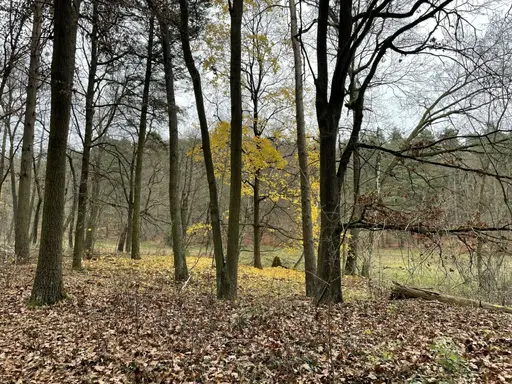
In ‘Reclaiming Time: On Blackness and Landscape’ (voor het eerst gepubliceerd in PN Review issue 257 in 2021), bekijkt dichter en schrijver Jason Allen-Paisant de geracialiseerde maatschappelijke contexten en moderne milieuconstructen die ‘Zwarte levens disproportioneel beroven van de voordelen van tijd.’ Hij put uit zijn poëziebundel Thinking with Trees om een koloniale epistemologie van de natuur te schetsen, en de rol van poëzie te benadrukken in het genereren van vormen van Zwart verwantschap en politiek bewustzijn, gebaseerd op een hernieuwd gevoel van ‘diepe tijd’. De vraag of het mogelijk is om middels poëzie ‘tijd terug te claimen’ staat centraal in de tekst.
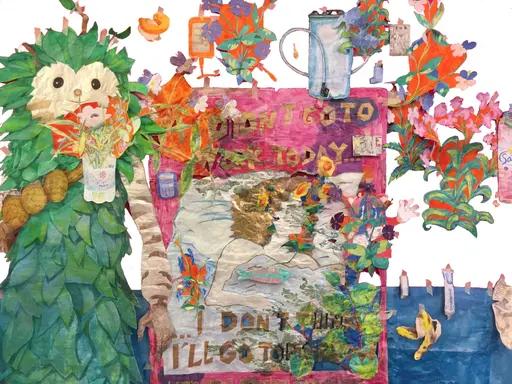
Als hij door de ‘Nothing To Declare’ uitgang van het vliegveld London Stansted loopt, ziet Sam Keogh drie grensbewakers: een varken, een eenhoorn en een bezorgde cartoonklok. Pig Eater is het script voor een monoloog dat voor het eerst opgevoerd werd als onderdeel van Keogh’s tentoonstelling Sated Soldier, Sated Peasant, Sated Scribe, in Goldsmiths Centre for Contemporary Art, Londen in 2021. Het verweeft fantasieën over overvloed en de afschaffing van werk; over feesten en rusten; over sabotage, anachronisme en het ‘opfokken’ van lineaire tijd.

In dit gesprek met Walidah Imarisha (voor het eerst gepubliceerd in Toward the Not Yet: Art as Public Practice, BAK en MIT Press, 2021), schetst de schrijver en activist haar concept van ‘visionaire fictie’ als een verbeeldingspraktijk om toekomsten te verlossen van het bolwerk van lineaire tijd. Imarisha put uit haar werk als strafrechtelijk abolitionist, en spreekt specifiek tot de bewegingen en ideeën die voortkomen uit de Zwarte strijd in de Verenigde Staten. Ze benadrukt dat we ons bij het veranderen van de toekomst moeten verhouden tot het verleden: ‘specifiek vanuit een kader gericht op gedekoloniseerde, niet-lineaire dromen van vrijheid die gegrond zijn in de strijd van gemeenschappen van kleur voor autonomie en bevrijding van kolonialisme.’
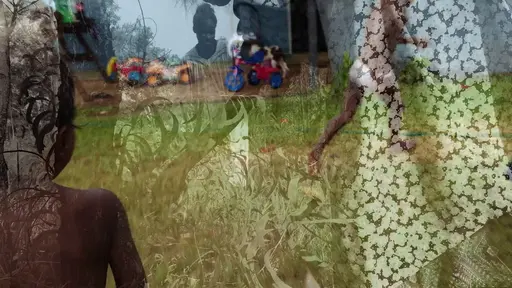
In haar essay ‘In Some Places the Not-Yet Has Long Been Already’ (voor het eerst gepubliceerd in Toward the Not Yet: Art as Public Practice, uitgegeven door BAK, basis voor actuele kunst en MIT Press, 2021) put Elizabeth A. Povinelli uit haar werk als onderdeel van het Karrabing Film Collective. In de tekst contrasteert ze de temporele oriëntatie van het laat-koloniale liberalisme – getroebleerd door de op handen zijnde catastrofes van een totale klimaatinstorting – met de voorouderlijke catastrofes van kolonialiteit en slavernij, die zowel van het verleden als het heden zijn. Deze voorouderlijke catastrofes, aldus Povinelli, ‘blijven groeien uit de grond die kolonialisme en racisme hebben bewerkt, in plaats van op te duiken aan de horizon van liberale vooruitgang.’
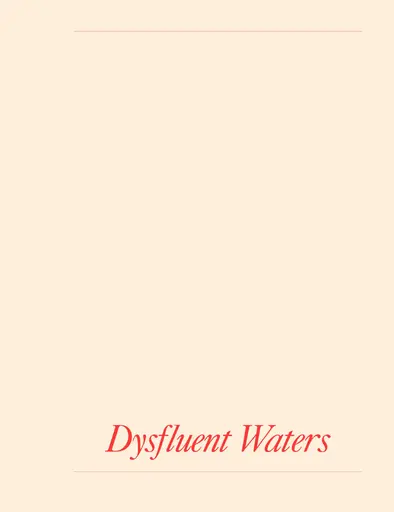
‘Dysfluent Waters’ is onderdeel van het multidimensionale project The Clearing van muzikant en schrijver JJJJJerome Ellis, respectievelijk een boek uitgegeven door Wendy’s Subway en een gelijknamig album uitgebracht door NNA Tapes in 2021. Hij ziet het bos en haar open plekken als ‘plaatsen waar al eeuwenlang verzet plaatsvindt middels zwarte gesproken cultuur.’ Ellis onderzoekt hoe stotteren, zwartheid, en muziek een rol kunnen spelen bij verzetspraktijken tegen dominante voorschriften voor de beleving van tijd, spraak en ontmoeting.
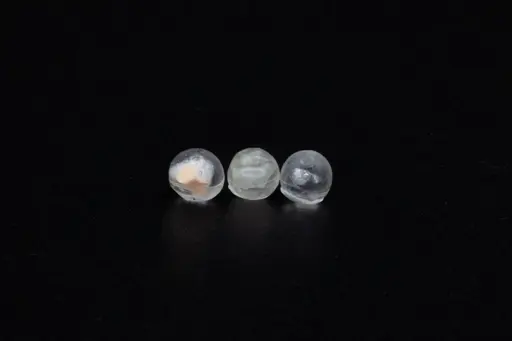
In haar tekst ‘Dearest Zen (Letters to Lichen)’ presenteert kunstenaar en wetenschapper Adriana Knouf toekomstige liefdesbrieven aan korstmossen: de samengestelde symbioten van schimmels en algen of cyanobacterieën. Bezien door de lenzen van de ‘xenologie’ (Knouf’s term voor de studie, analyse en ontwikkeling van het vreemde, buitenaardse en andere) en trans*-tijdelijkheden, onderzoekt ze manieren om te leren van, en opgetogen mee te doen met, intimiteiten en uitwisselingen tussen verschillende organismen.
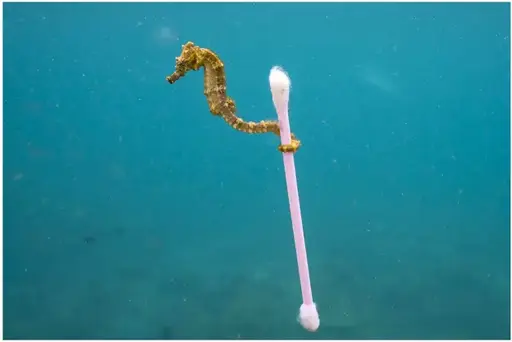
In ‘Immortals: on the Ancient Future Lives of Stone and Plastic’ verweeft Marianne Shaneen verhalen, geschiedenissen en ontologieën van twee materialen: steen en plastic. Als quasi-onsterfelijke substanties zijn steen en plastic getuige van de catastrofale effecten van uitbuitende lineariteit, terwijl hun levensloop veel langer is dan dat van een mensenleven. Dit essay verweeft deze twee materialen, die schommelen tussen het geologische en synthetische, en die diep ingebed zijn in industrieel-kapitalistische ontwikkeling.
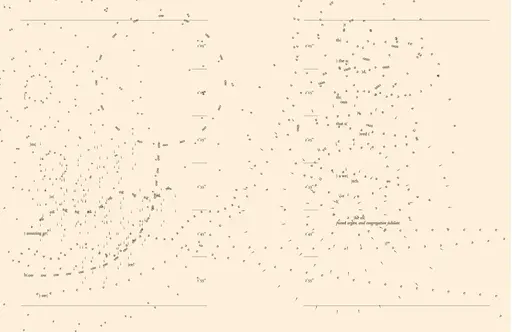
‘The Clearing: Melismatic Palimpsest’ is onderdeel van het multidimensionale project The Clearing van muzikant en schrijver JJJJJerome Ellis, respectievelijk een boek uitgegeven door Wendy’s Subway en een gelijknamig album uitgebracht door NNA Tapes in 2021. Hij ziet het bos en haar open plekken als ‘plaatsen waar al eeuwenlang verzet plaatsvindt middels zwarte gesproken cultuur.’ Ellis onderzoekt hoe stotteren, zwartheid, en muziek een rol kunnen spelen bij verzetspraktijken tegen dominante voorschriften voor de beleving van tijd, spraak en ontmoeting.
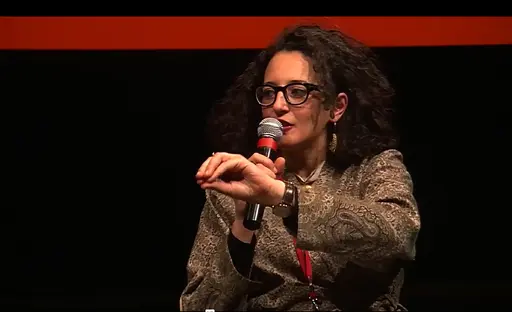
As part of FORMER WEST: Documents, Constellations, Prospects, 18–24 March 2013 at Haus der Kulturen der Welt, Berlin, art critic, poet, and curator Ranjit Hoskote convened a forum on “Insurgent Cosmpolitanism” with cultural theorists and artists whose work addresses and performs the insurgent cosmopolitan condition.
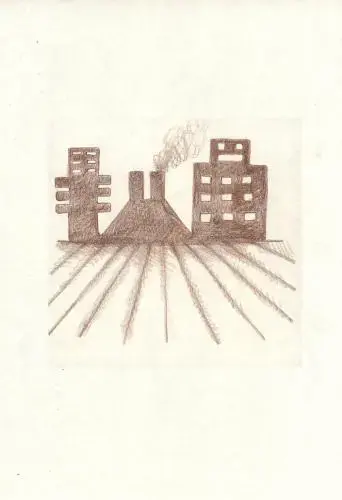
Mariana Botey’s tekst The State Is Coagulated Blood and Bones is geschreven als een proloog op Cooperativa Cráter Invertido's codexstrip Sangre Coagulada y Huesos (Coagulated Blood and Bones, 2021). De twee bijdragen zijn in samenwerking tot stand gekomen en moeten parallel gelezen worden, voor een wederzijdse opbreking van tekst en beeld.
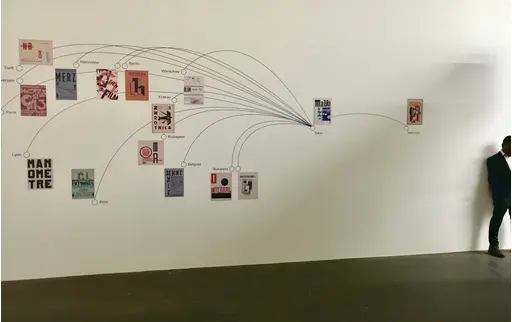
Long weaponized in the service of capital by the agents of neoliberalism, the nation-state is once again upheld as the bulwark of a white ethnos, securing privilege against migrants and immigrants, and against other nation-states in relations of neocolonial dependence. Meanwhile, contemporary art—the globalist heir to modernist internationalism—has become an investment languishing in freeports or stored in the blockchain.
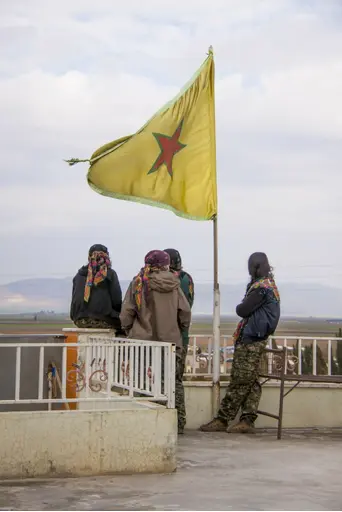
Uit: New World Academy Reader #5: Stateless Democracy, Renée In der Maur and Jonas Staal in dialoog met Dilar Dirik, red. (Utrecht: BAK basis voor actuele kunst, 2015), pp. 27–54
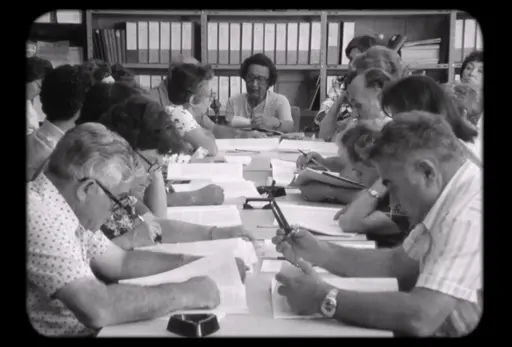
Uit: Once We Were Artists, Maria Hlavajova and Tom Holert, eds. (Utrecht: BAK, basis voor actuele kunst en Amsterdam: Valiz, 2017), pp. 32–52
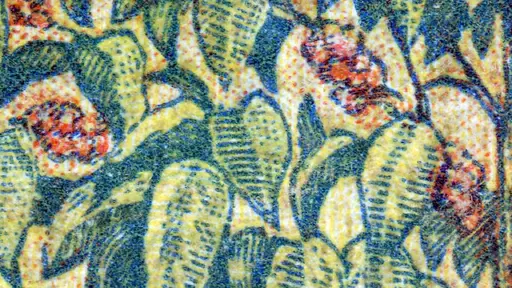
In 1970–1971, Guyanese radical historian and anti-colonial activist Walter Rodney gave a series of lectures on the historiography of the Russian Revolution at University of Dar es Salaam, Tanzania. Inspired by C. L. R. James’s historical work on the October Revolution, Rodney set out to reveal the parallels between the problems confronting the postcolonial regimes in Ghana and Tanzania, and those that the Bolsheviks faced in building the Soviet state.
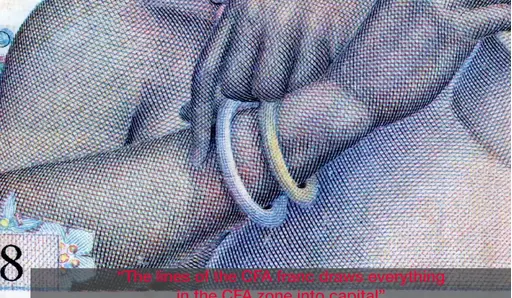
De video The Cut, The Punch, The Press (2021) is onderdeel van Mercurial Relations (2016–doorlopend), een onderzoeksproject van Nina Støttrup Larsen gericht op de munteenheid de CFA-frank.
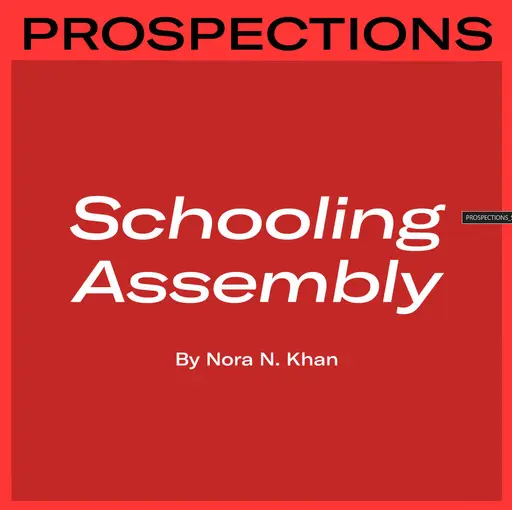
“Schooling Assembly” by Nora N. Khan traverses a year of pandemic teaching, in which faculty and students have witnessed widening cracks in the university system and its human opportunity cost calculations, and have faced new challenges in asserting creative and collective autonomies.
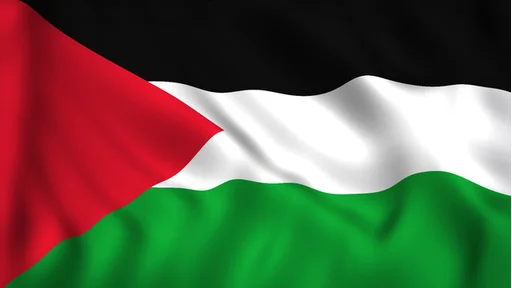
BAK, basis voor actuele kunst, Utrecht stands in solidarity with the Palestinian decolonization struggle and with decolonization efforts everywhere.
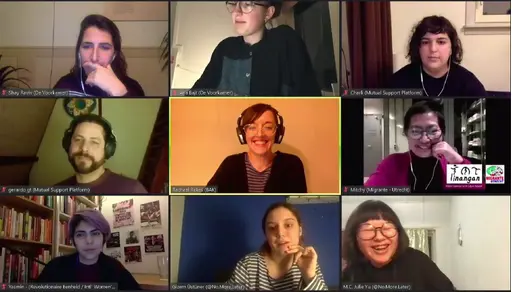
Deze lokaal georiënteerde tweede editie van Practicing Tactical Solidarities, op 16 december 2020, richtte zich op verschillende tactieken en mogelijke lessen op het gebied van het creëren van netwerken voor wederzijdse hulp, duurzame ondersteuningssystemen en spoedeisende zorg tijdens de aanhoudende pandemie.
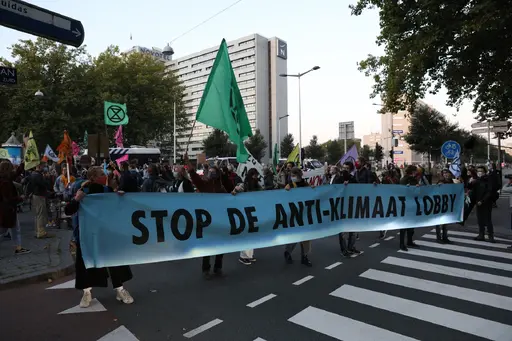
Extinction Rebellion (XR) entered the spotlight in late 2018 with a call for mass disruptions, followed by a first wave of actions which saw thousands come together to block major bridges in London.
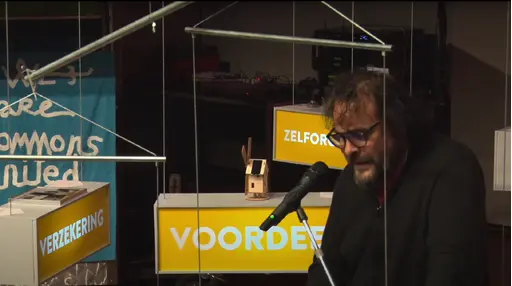
La Colonie opened its doors on rue La Fayette, Paris on 17 October 2016 as a radically open space of discussion and exchange for diverse cultural and political communities.
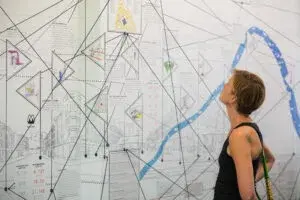
Dit diagram van kunstenaar Jeanne van Heeswijk vertelt het verhaal van Freehouse Radicalizing the Local (2008–2019), een project gericht op de strijd voor het recht op een goed leven in de Afrikaanderwijk in Rotterdam.
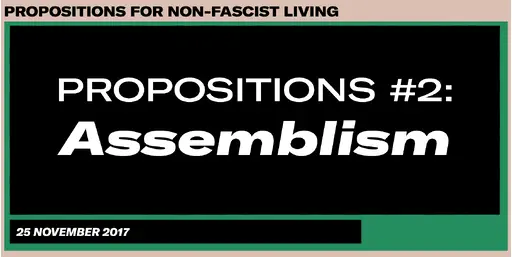
The event Third Assembly: After the Assembly took place as part of the daylong program Propositions #2: Assemblism, convened by BAK and artist Jonas Staal on 27 November 2017.
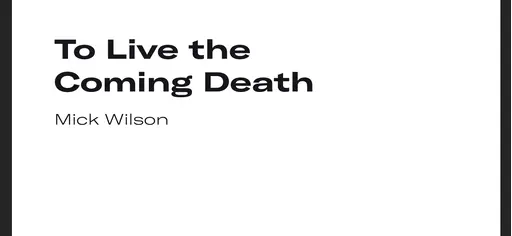
Uit: Propositions for Non-Fascist Living: Tentative and Urgent, Maria Hlavajova and Wietske Maas, eds. (Utrecht: BAK, basis voor actuele kunst en Cambridge, MA: MIT Press, 2019), pp. 165-179
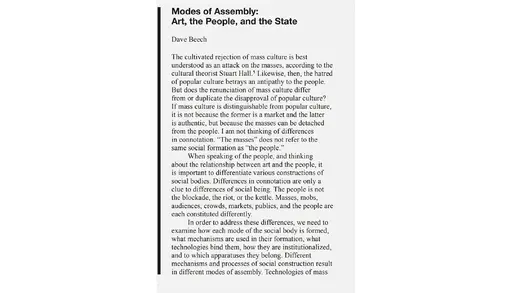
Uit: FORMER WEST: Art and the Contemporary After 1989, Maria Hlavajova en Simon Sheikh, eds. (Utrecht: BAK, basis voor actuele kunst and Cambridge, MA: MIT Press, 2016), pp. 559-569
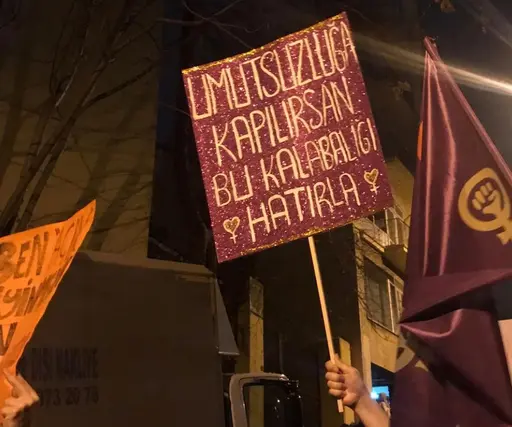
"We were in the streets for the Feminist Night March on 8 March, exactly three days before the first Covid-19 case was officially declared in Turkey..." Read the translation of an essay originally published in Turkish on 1+1 Forum, 30.04.2020.
Voor deze eerste sessie van In Proximity, een doorlopende serie als onderdeel van Prospections, gaat Rachael Rakes, curator Public Practice bij BAK, basis voor actuele kunst in gesprek met kunstenaar en BAK 2017/2018 Fellow Wendelien van Oldenborgh.
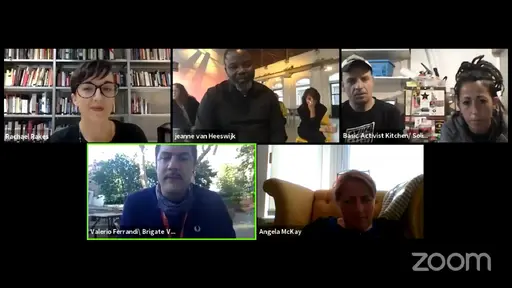
Een videoregistratie van het online event Practicing Tactical Solidarities: A Roundtable on Mutual Aid, Emergency, and Continuous Care, gelivestreamed via Prospections op woensdag 29 april 2020, 19.00–21.00 uur.
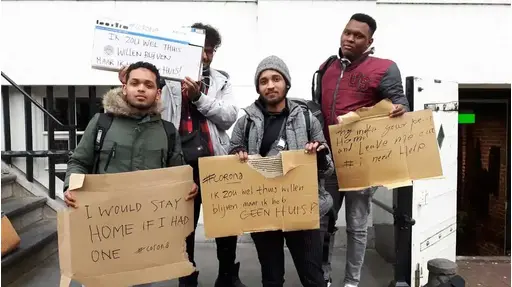
Interview en introductie door Irene Calabuch Mirón en Sanne Karssenberg (BAK, basis voor actuele kunst).
Uit: Trainings for the Not-Yet, een tentoonstelling als een serie trainingen, door Jeanne van Heeswijk en BAK, basis voor actuele kunst, Utrecht in samenwerking met vele anderen (2019–2020)
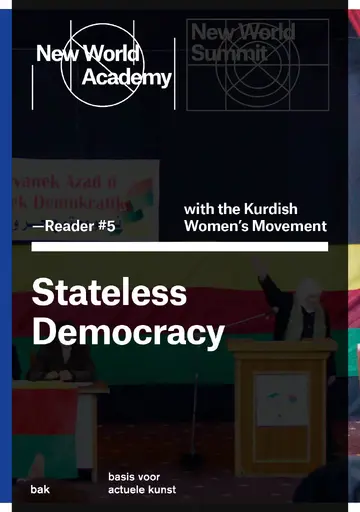
Voortgekomen uit: New World Academy, een alternatief educatieplatform voor kunst en politiek, opgezet door Jonas Staal en BAK, basis voor actuele kunst (2013–2016).
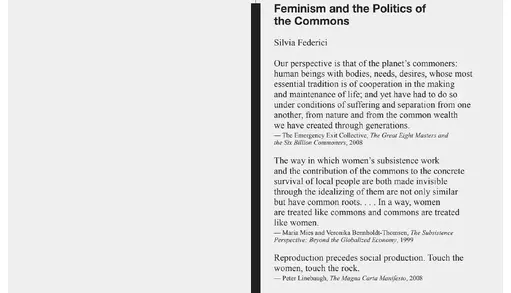
Uit FORMER WEST: Art and the Contemporary After 1989, Maria Hlavajova en Simon Sheikh, eds. (Utrecht: BAK, basis voor actuele kunst en Cambridge, MA: MIT Press, 2016), pp. 379-390.
